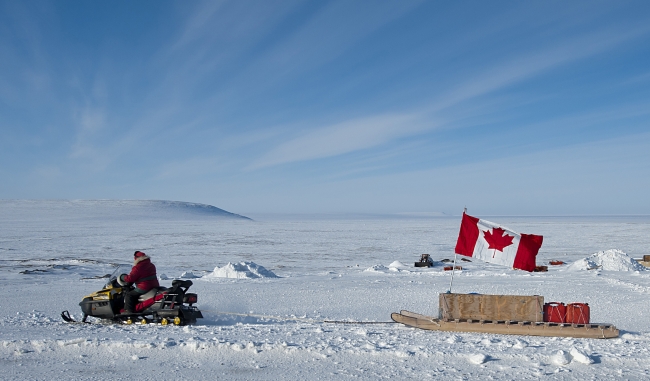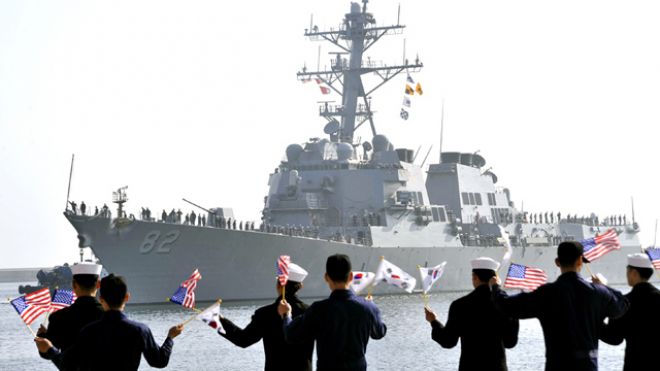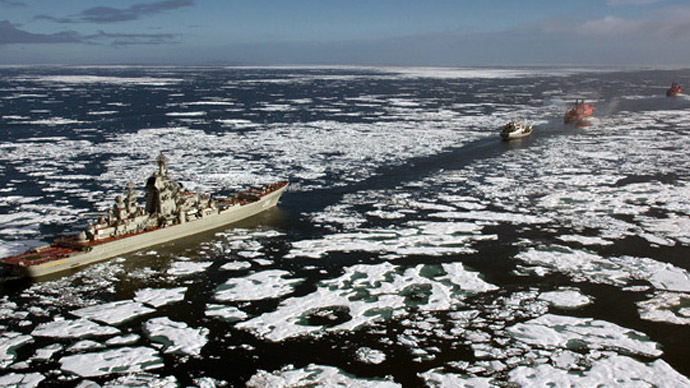The breakdown of relations between the West and Russia over events in Ukraine has escalated to an exchange of sanctions, costing each side billions in lost business. The looming threat of another Cold War suggests that we might not see an uptick in relations for another generation. Meanwhile, scientists have reported the first documented release of methane gas in the Arctic, once again focusing the debate on the impact of climate change in the region and specifically, the massive changes that could happen if the vast quantities of methane find their way into the atmosphere. For Canada, it’s a double dose of reality: half of the country is in the warming Arctic, and its relations with Russia in the deep freeze. Canada needs a robust policy to guarantee its Arctic sovereignty, benefit from northern development, while also ensuring that the wider Arctic, in which Russia plays a larger role, remains a stable geopolitical space for Canada’s interests to be protected.
First, why does climate change in the Arctic matter? A warmer climate means that summer ice will recede to unprecedented levels, making it more navigable during the winter months. On the whole, year-round access to the Arctic would improve, and with advances in shipbuilding technology, a wider variety of vessels would be able to access it. Better access will mean that more people will be able to live there; the infrastructural development would be easier, and investments in energy, resources and services will become more competitive. Environmentally, a warmer Arctic would put pressure on the survival of the region’s traditional flora and fauna and would increase the emphasis on sustainable development. It would also increase the need to gather substantial information with regards to Canada’s impact on the changes of the Arctic’s natural cycles. Domestically, these are the primary concerns for Canadian policymakers.
Geopolitically, the picture is more complicated. As far as the Arctic management is concerned, Russia is unique in the scale, complexity and capacity with which it operates in the region. The northern port of Murmansk, while not frozen year-round, is one of the most extreme commercial operations in the world, and it also works in tandem with the Northern Sea Route, a shipping passage that Russia maintains for commercial vessels year-round. A large fleet of military and civilian icebreakers operates along the Russian coast, ensuring that access is maintained during the winter months.
In 2013, Russia also developed its first Arctic battalions—military units dedicated to a full range of operations in the Arctic. Russia’s use of submarine and strategic aviation units also indicate that the country has the capacity to monitor and enforce its Arctic sovereignty. Moreover, unresolved territorial disputes with Canada over maritime Arctic sovereignty would extend each country’s territory, once settled by UN arbitration. Demarcated borders will also mean increased investment into border control, and may lead to frequent incidents of vessels and aircraft infringement on the new borders.
Arctic geopolitics led to the expansion of the Arctic Council in 2013, which includes representation from emerging world powers, such as India and China. This development signifies that the Arctic’s political, military and economic aspects would become difficult to negotiate. The emergence of China as one of the World’s leading economic powers holds a wide array of implications for Beijing’s global influence and especially in the Arctic.
Canada does not need to match Russia’s capabilities 1:1 in the Arctic, but it does need several elements of a strong Arctic policy. First, a national approach to creating monitoring and enforcing capacity for Arctic sovereignty, which includes rules of access to the Northwest Passage. Secondly, focusing the attention of NATO on the sensibilities of the fast-changing Arctic realities will do more to guarantee Canada’s access to the Arctic and the viability of its interests there. Thirdly, we must define precisely what Canada’s Arctic interests are and formalize them into an Arctic strategy. This strategy could be utilized as a foundation to create minimum standards of international conduct in the Arctic, via the Council, and to guarantee its long-term geopolitical stability and predictability of the region, in the face of deteriorating relations with Russia. Minimum communication in international relations is always necessary, so as to avoid critical mistakes and misunderstandings in policy and conduct.
Prime Minister Stephen Harper’s government has limited time before the upcoming 2015 federal elections to create an encompassing Arctic strategy. It is possible that Canadians will see it as an election campaign promise, and the task will likely be left to the next government. The issue is forced by rapid climate change, meaning that Canada must engage its northern reaches not only for its domestic interests and international interests, but also to foster peace and security in this increasingly critical global region.




